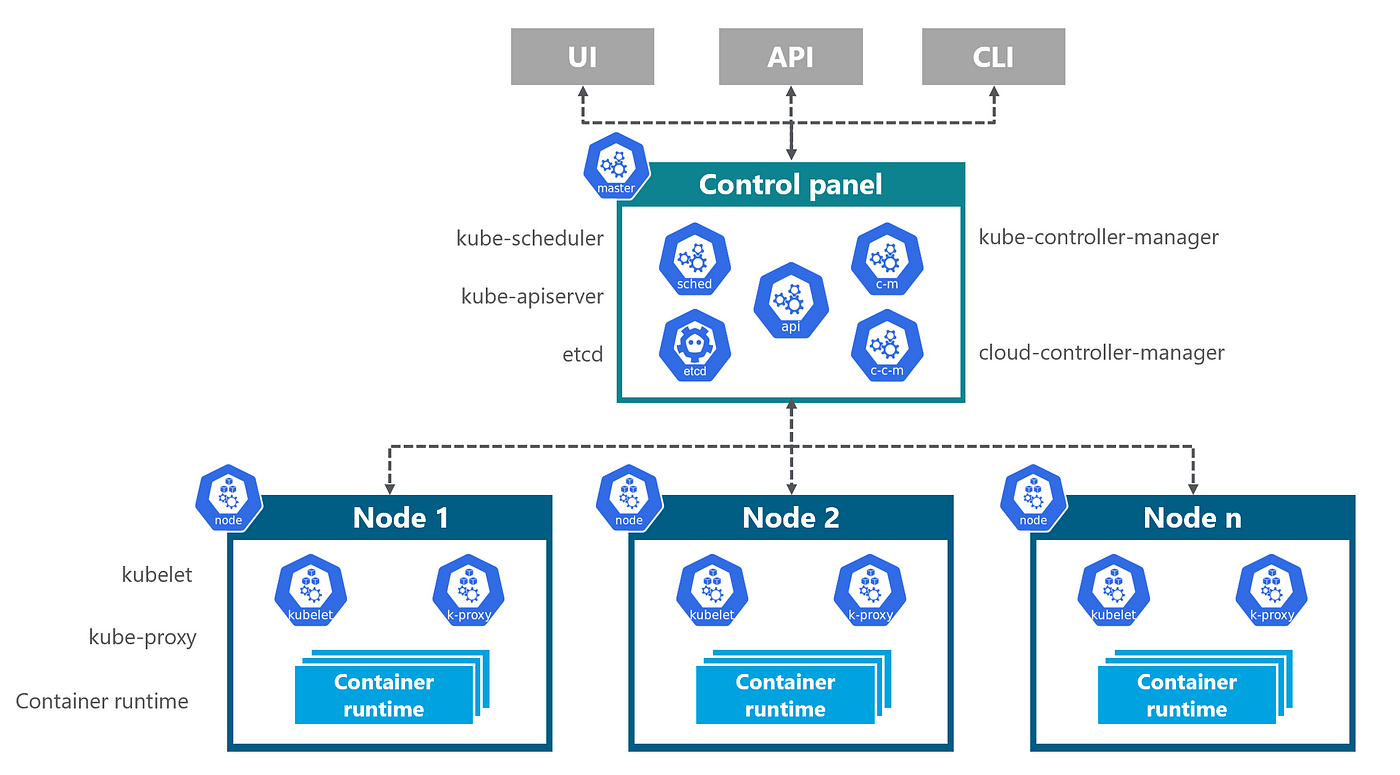Akuity, a provider of app delivery software for Kubernetes, announced today that it had closed a $20 million Series A funding round led by Lead Edge Capital and Decibel Partners, bringing the total amount raised from Akuity to $25 million. Co-founder and CEO Hong Wang says the funding will allow Akuity to expand its workforce while contributing to the open-source community.
Apps are increasingly built using containers, or “microservices,” packaged with all the necessary dependencies and configuration files. Kubernetes is open-source software for deploying and managing these containers; while popular, collecting containers with Kubernetes can become complex, especially as legacy software is moved to the cloud as part of pandemic-driven digital transformations. According to a recent survey (albeit commissioned by a Kubernetes tooling provider), more than a third of developers and architects admit that Kubernetes has become a major source of burnout.

Wang, Jesse Suen, and Alexander Matyushentsev believed there must be an easier way. The three were the founders of Applatix, a Kubernetes management engine acquired by Intuit in 2018. A year earlier, Applatix had an open-source project called Argo, a container-native workflow engine designed to simplify the process of specifying, scheduling, and coordinating the execution of apps on Kubernetes. After the acquisition of Applatix at Intuit, Wang, Suen, and Matyushentsev explored ways to promote Argo as oversight of the project was transferred to the Linux Foundation.
“Companies are well on their way to containerization. However, when these organizations move to Kubernetes, they quickly discover that their existing, legacy tooling is incapable of delivering Kubernetes native apps with their configuration-heavy design,” Suen told blog line via email. †[W] while Kubernetes is very powerful, it is extremely complex and offers a bad out-of-the-box developer experience. That’s why organizations are investing in platform and infrastructure teams and development experience teams to standardize and ease their transition to Kubernetes. Assembling these teams is a challenge, compounded by both the high demand and low supply of Kubernetes expertise. In addition, many of these organizations would re-implement the same patterns over and over and would benefit from a codified set of best practices and standardized tooling.”
Suen and Wang position Argo, and by extension Akuity, as a complement to traditional continuous delivery (CD) solutions offered by vendors such as Armory, CloudBees, and Harness.io. (In software development, “continuous delivery” refers to the technical approach where teams create software in short cycles to ensure it can be reliably released at any time.) Argo allows developers to create a “pipeline” for building apps and specify the pipeline as code so that it can be built or upgraded using containers and run on other systems.
“Acuity was founded to help companies modernize their Kubernetes tooling, leveraging Argo, the leading open source suite of Kubernetes native app delivery software,” Wang told blog line in an email interview. †[With Akuity,] we aim to revolutionize the DevOps space, providing the most advanced toolset to help developers get the most value out of Kubernetes.”
To that end, Akuity is launching a fully managed version of Argo called Akuity Platform. Akuity Platform, which is currently in closed beta and will be generally available later this year, will add features to Argo, such as deployment analytics and telemetry, health checks for app components, and an audit trail and history of app events and API calls.
“The biggest problem we solve for companies is facilitating their transition to Kubernetes,” Matyushentsev, who recently became a chief architect at Akuity, told blog line via email. “Of [Akuity,] businesses can enable high deployment frequency for rapid delivery of new features and updates, reduce [the] turnaround time for changes and updates, … shorten the average time to recovery to recover quickly, … minimize the number of failed changes (i.e., percentage of errors resulting from changes), [and] increase the stability and reliability of apps and services.”
It’s still early days for Akuity, which has rivals in container-friendly CD tools like Flux CD and Jenkins X. But Wang pointed to Argo’s acceptance as proof that Akuity is on the right track. Argo’s production usage increased 115% year-over-year, according to a 2021 study by Cloud Native Computing Foundation, the Linux Foundation that oversees Argo. And since its launch last October, Akuity has struck “several” deals with Fortune 1000 companies, Wang claims.
Whether that translates into strong momentum on the road remains to be seen – especially without sales figures. Either way, tooling and services built around Kubernetes are a huge opportunity. A Canonical poll in 2021 found that 45.6% of organizations are now using Kubernetes in production. A separate report estimates that the market for Kubernetes solutions will reach $5.56 billion in 2028, up from $1.71 billion in 2021.
“Our product adoption accelerated during the pandemic,” Wang added. “Based on our conversations with customers, many are taking advantage of Kubernetes adoption capabilities to refresh their developer tools stack. Argo will be the default choice because it is Kubernetes native and has tCD space’s host vibrant open-source community.”





